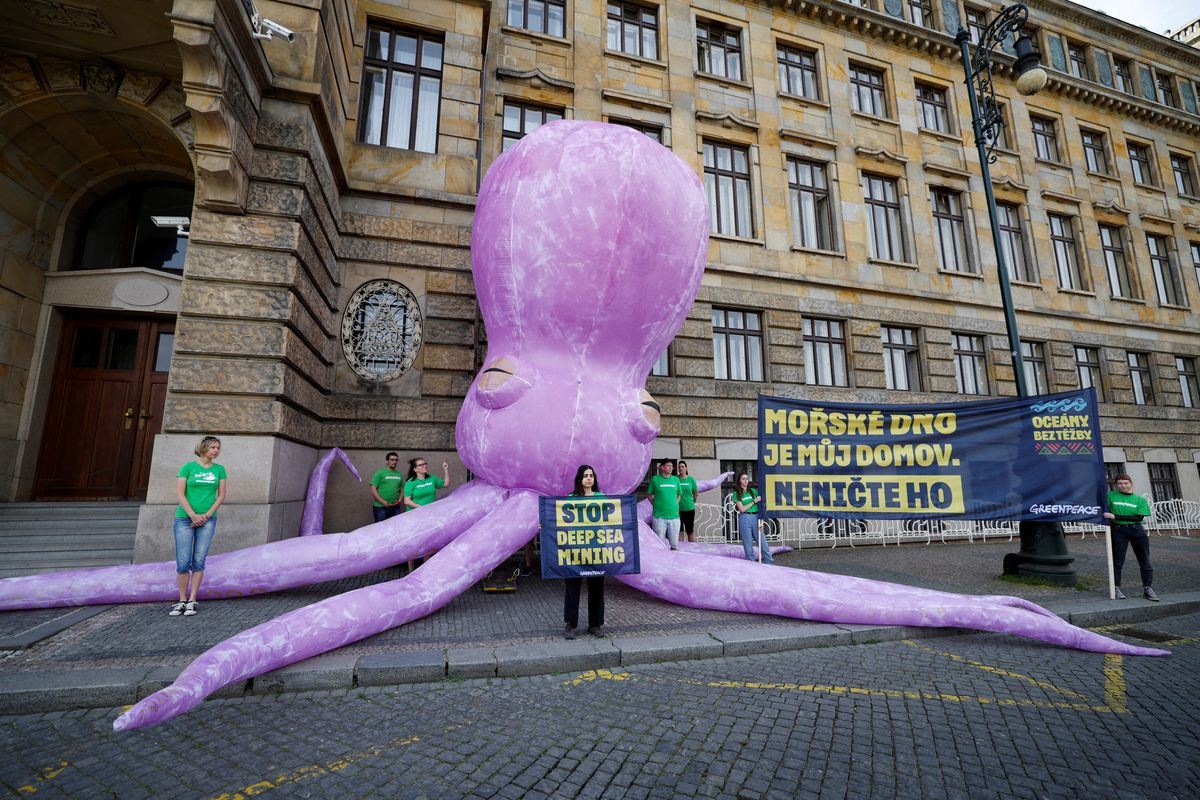The future of deep-sea mining without regulations
In 2021, the small island country of Nauru made an announcement about wanting to start sponsoring deep-sea mining projects.

A few minutes every morning is all you need.
Stay up to date on the world's Headlines and Human Stories. It's fun, it's factual, it's fluff-free.
The deep ocean floor is still a major mystery to us humans. Even without knowing much about what goes on down there, some countries want to start exploring oceanic mining opportunities.
In 2021, the small island country of Nauru made an announcement about wanting to start sponsoring deep-sea mining projects. See, the seafloor could be hiding precious and valuable metals (like nickel, cobalt and copper). And, because most of the deep ocean floors can’t really belong to any single country (as per the UN), that means that any country is free to take advantage of them … technically. These areas are governed by the International Seabed Authority (ISA), though, which didn’t have a set of real deep-sea mining regulations.
It had already been a big debate for decades, but this development kicked the deep-sea mining conversation into high gear. Scientists and officials from other countries quickly shared worries about this kind of mining plan. It was then up to the ISA to create a set of regulations for this practice by July 2023. Well, that time has come and passed, and scientists are still worried.
“I don’t think we have reached a point in time that deep seabed mining can be done in a responsible way,” explained Pradeep Singh, an expert on ocean governance and a fellow at the Research Institute for Sustainability at Helmholtz Centre Potsdam, recently. “We’ll just end up with the situation where we see more of the same old problems [with mining] on land, but new ones at sea.” As humans have mined above ground, we’ve damaged natural ecosystems and polluted water, air, and land–plus, we’ve seen many human rights abuses related to this industry.
The ISA didn’t meet its deadline for figuring out the rules, meaning that Nauru could go through with its deep-sea mining projects without dealing with international regulations. So, what happens when other countries and private companies begin to follow Nauru’s lead?
When mining on land, companies have to account for what is called “land restoration,” and some say a similar policy would have to apply for deep-sea mining.
“The mining code is currently saying that there will be a fund dedicated to … cover [ecosystem and environmental) restoration cost, provided that it's economically feasible, which is a little bit vague, but that's all we have for now,” says Francois Mosnier, Planet Tracker’s head of ocean programs. “It could be that some states assume that no one's going to pay for that.”




Comments ()